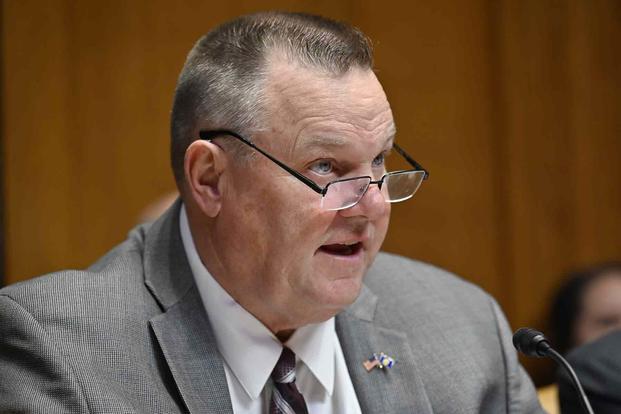Lawmakers will try to revive a veterans marijuana research bill that failed a Senate vote this week, but the chairman of the Senate Veterans Affairs Committee is pessimistic negotiations will succeed.
Senators had also been expected to use the marijuana bill as a vehicle to pass several other veterans-related measures on issues ranging from the VA caregiver program to homeownership for Native American veterans, but committee Chairman Jon Tester, D-Mont., told Military.com on Thursday that "they may all be dead" now.
"At this moment in time, there is not a specific path forward," Tester said. "I just don't like it when the Senate votes against their veterans. That's what happened yesterday. Forty-one of them did."
Read Next: 3 Soldiers Killed in Helicopter Collision, the 2nd Such Accident in Less than a Month
The bill would require the Department of Veterans Affairs to conduct a "large scale" observational study of veterans who use marijuana and have chronic pain or PTSD to see how the drug affects their health, including whether those veterans reduce their use of opiates or alcohol.
After the observational study, the VA would have to report back to Congress on the results and whether it believes it can conduct a clinical trial. If the department proceeded with a clinical trial, the research would look at how different forms and strengths of the drug affect symptoms of chronic pain and PTSD.
"If we've got veterans out there that are able to use cannabis and have it deal positively with PTSD and chronic pain, who am I to say no?" Tester said Thursday. "Because pain kills. I mean, it literally does kill."
In a procedural vote Wednesday afternoon, the Senate voted 57-42 to advance the marijuana bill -- short of the 60 votes needed to pass.
Opposition came entirely from Republicans. Senate Majority Leader Charles Schumer, D-N.Y., supports the bill but had to switch his vote from "yes" to "no" for procedural reasons in order to potentially bring it up for a vote again in the future.
The failed vote was a shock after the bill unanimously advanced out of the Senate Veterans Affairs Committee in February with little fanfare. The measure has bipartisan sponsorship from Tester and Sen. Dan Sullivan, R-Alaska, and committee Republicans viewed the bill as a sensible way to examine the effects of a drug veterans are already using.
"This is an effort to make certain that veterans are not doing something that is harmful to them," Sen. Jerry Moran, R-Kan., the ranking member of the Veterans Affairs Committee and one of eight Republicans who voted to advance the bill, said on the Senate floor Wednesday.
But marijuana-related legislation is still a hard sell to the wider GOP conference.
"When the conversation about how to serve our veterans after all they sacrificed is to give them marijuana -- we have failed our veterans," Sen. James Lankford, R-Okla., tweeted ahead of the vote.
A study released in March found that nearly one in 10 veterans had reported past-year marijuana use from 2013 to 2019. A 2022 survey of Iraq and Afghanistan Veterans of America members found 71% said they'd be interested in using cannabis or cannabinoid products if they were available as a treatment option, and 86% said they think the VA should research it.
But even as more than 20 states have legalized marijuana for recreational use and at least 37 states allow medical marijuana, the drug remains illegal at the federal level, and the VA is not permitted to recommend, prescribe or pay for it.
Official VA policy says a veteran will not lose benefits for using marijuana and allows for discussion about marijuana use between VA providers and patients, but advocates say the drug's ambiguous legal status leaves veterans feeling stigmatized and uncomfortable discussing it with their doctors.
"Those who are suffering from PTSD, TBIs, and other conditions do not have the luxury of waiting for their representatives to reach a 'perfect' solution," Veterans Cannabis Project Executive Director Stephen Jones said in a statement Thursday about the failed Senate vote. "While this is a setback, we will continue to work with lawmakers to ensure veterans receive the care they deserve."
-- Rebecca Kheel can be reached at rebecca.kheel@military.com. Follow her on Twitter @reporterkheel.
Related: VA Would Have to Research Medical Marijuana Under Bill Advanced by Senate Panel













